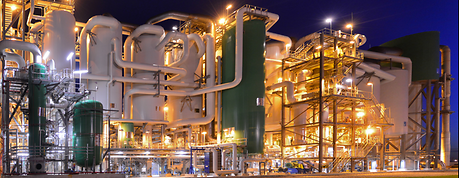Untreated foul condensates cannot be reused in a mill and put a high load of biochemical oxygen demand (BOD) and toxicity into the mill’s effluent treatment systems. By collecting these condensates and stripping them of their methanol content, most of the potential pollutants can be removed and the stripped condensates can be reused for pulp washing or the recausticizing plant.
Since the condensate treatment process in the evaporation plant produces off-gases (SOG) that have high heating value, these gases cannot be safely stored, making treatment options more difficult.
ANDRITZ conversion technology – liquid fuel that can be stored and transported
ANDRITZ liquid methanol plants convert SOG into a liquid fuel that has less than 20% water content. This form of liquid methanol (MeOH) is an excellent fuel for lime kilns, boilers, and incinerators that can be stored and transported safely.




